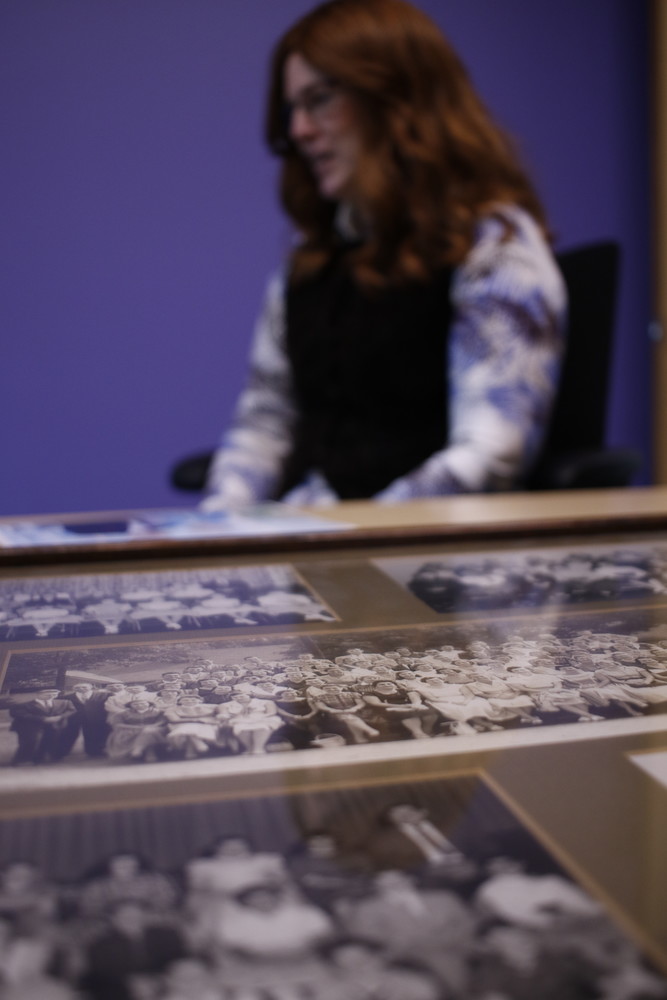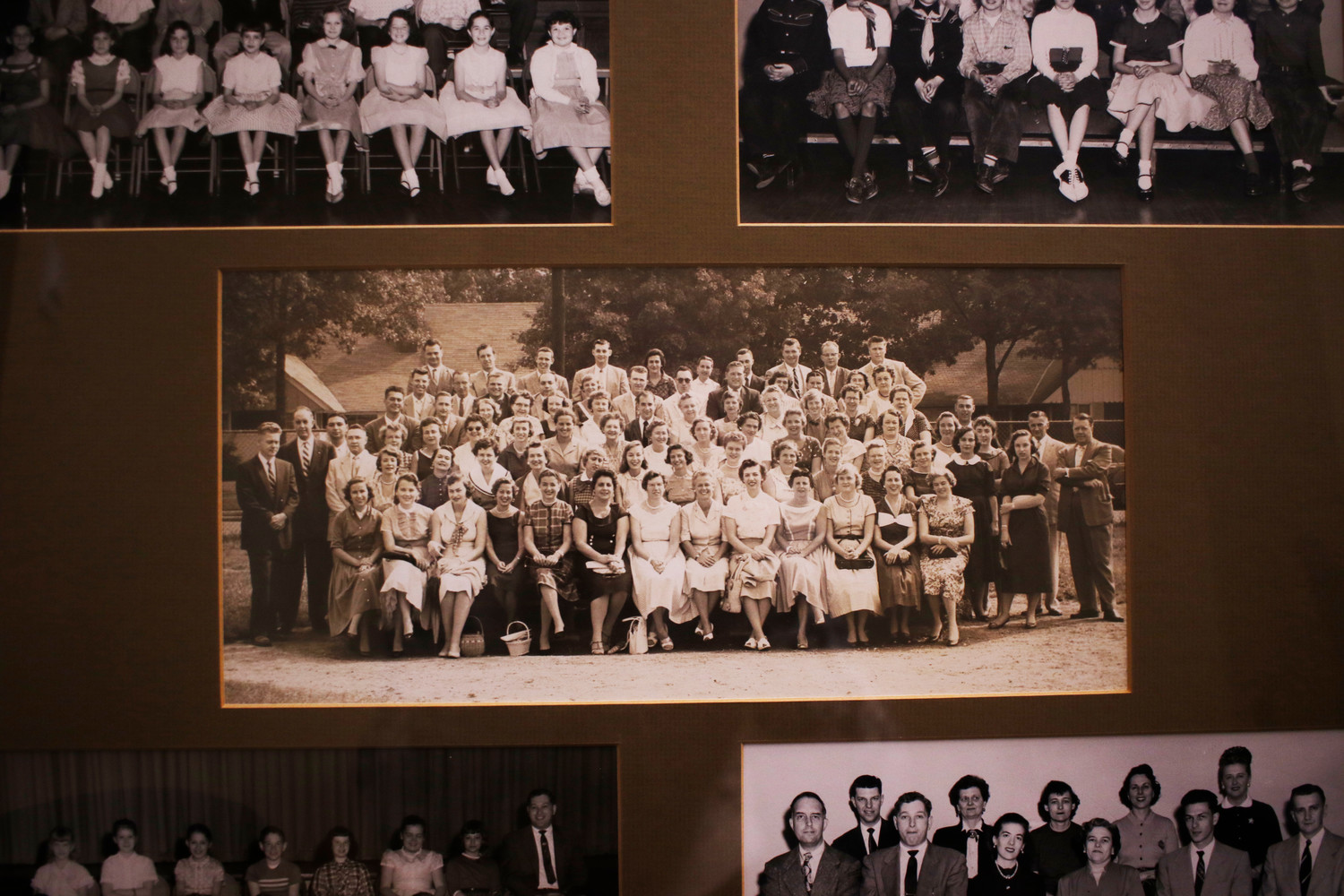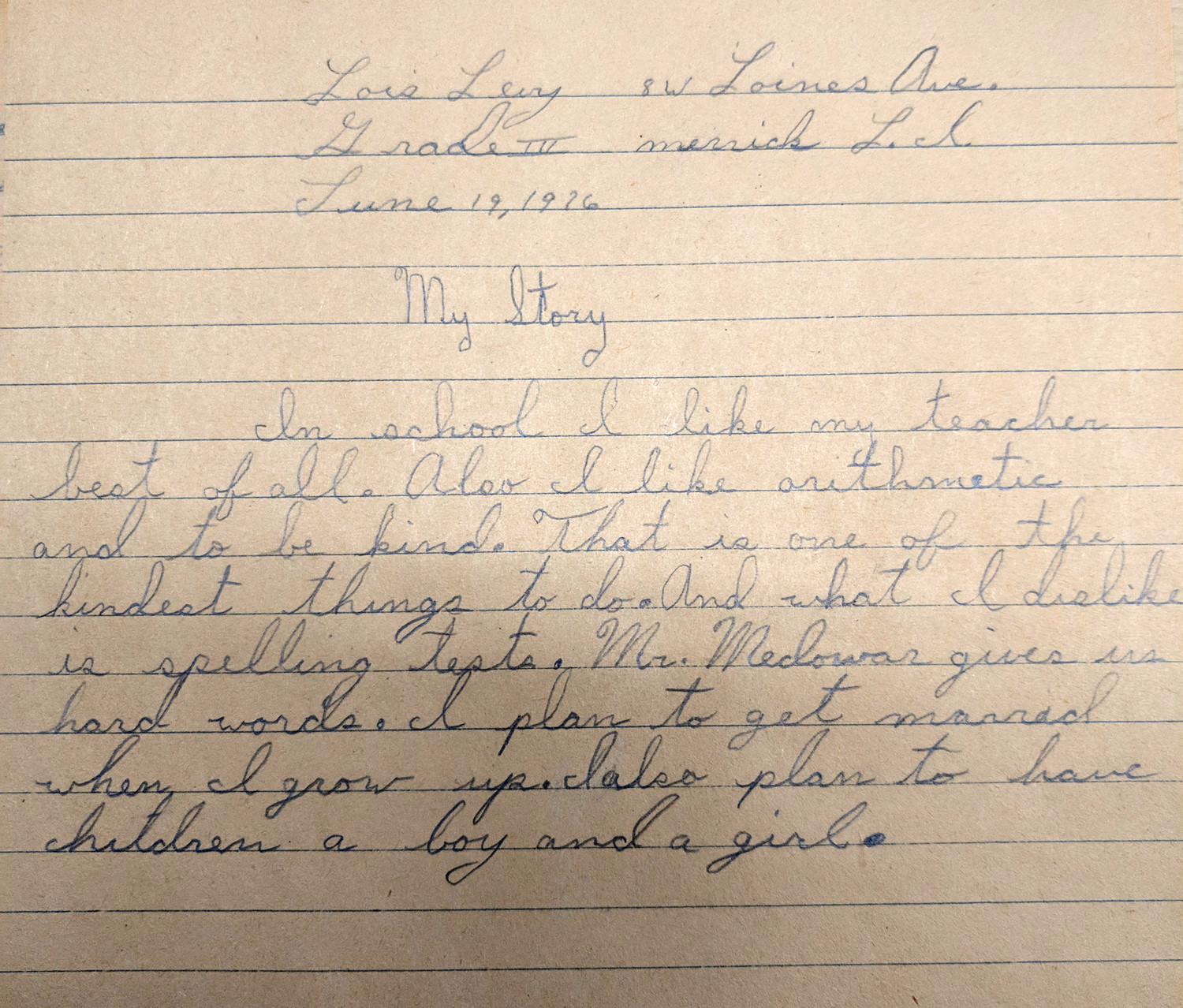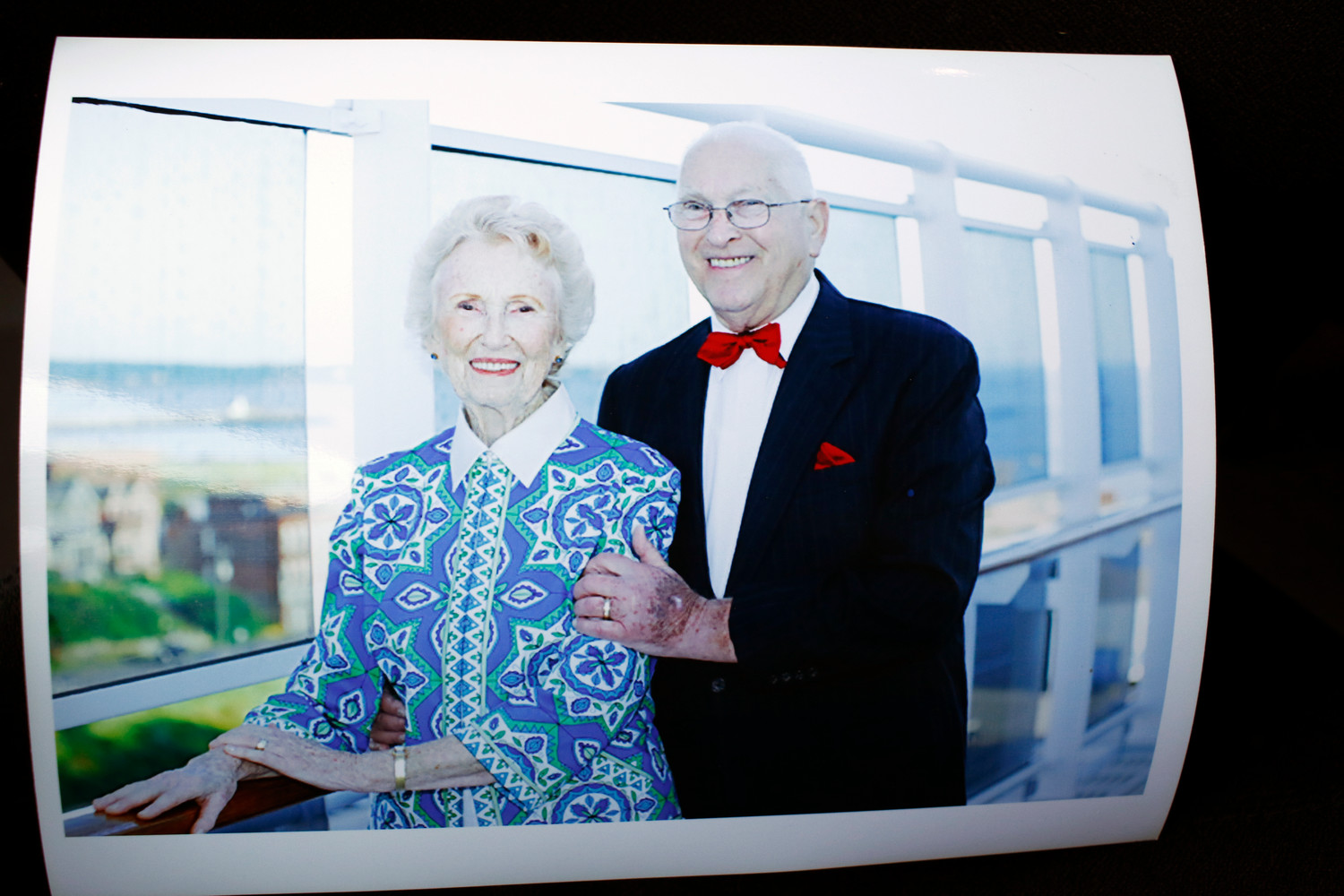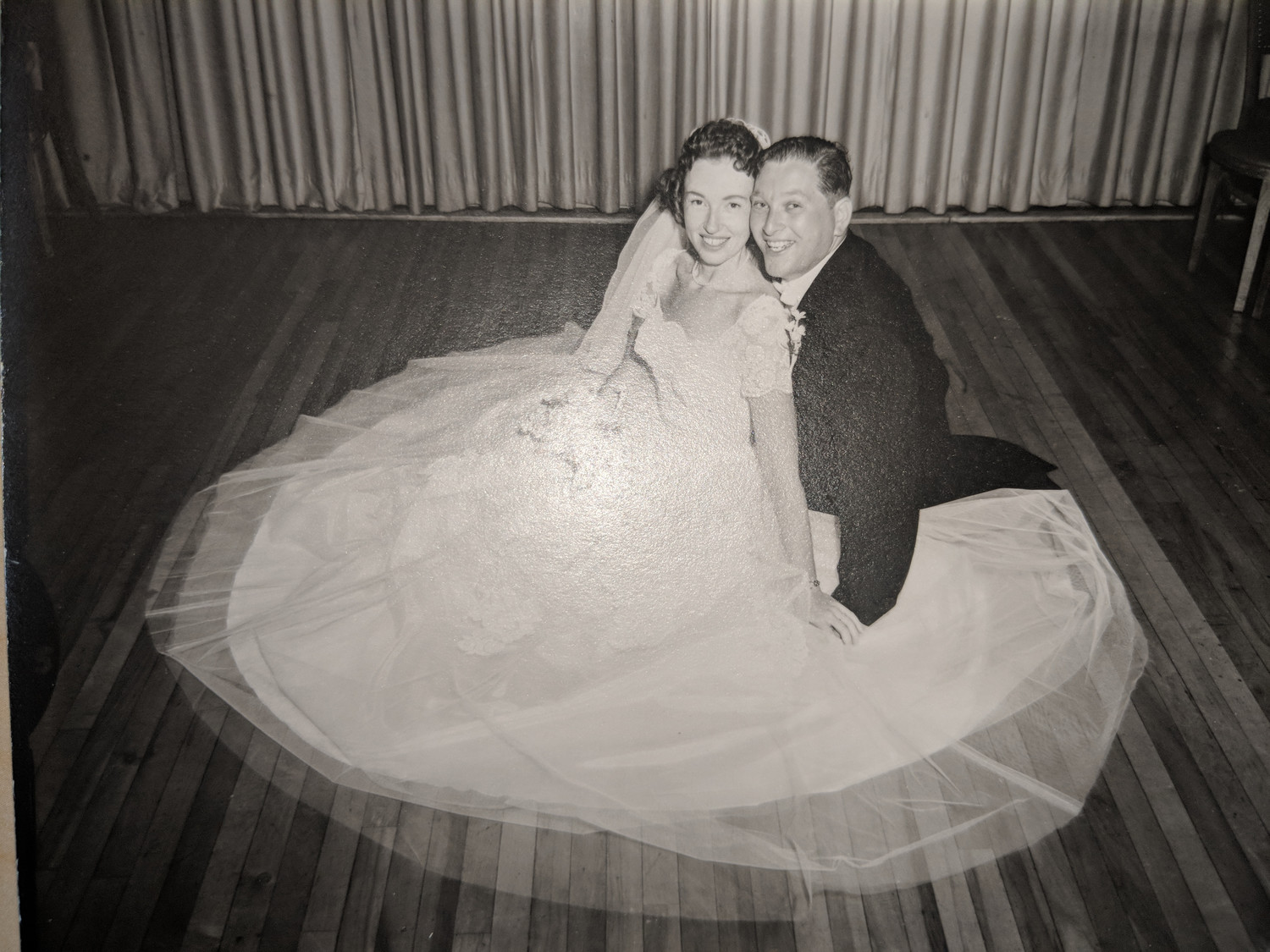Thursday, April 18, 2024
A peek into Merrick's past
Daughter of late judge, local historian uncovers time capsule
Susan Ackerson
Rosemary Bauer
Deborah Dinnar
Tom Fay
Danny J. Feil
Susan Gripon
David Hammerman
Jerry Davis Holleb
David Iverson
Jacqueline Levy
Lois Levy
James Lynn
Steven K. Mason
Steve Michel
Gary Stone
If any of these former students read this story and would like to reach out to Debra Medowar Landau about the time capsule, they can contact editor Erik Hawkins at ehawkins@liherald.com or at (516) 569-4000 ext. 214.
Judge Jerome “Jerry” Medowar, who died last June, had roots in the Merrick community that were perhaps deeper than anyone else’s. For decades as a schoolteacher, librarian, attorney, judge and unofficial local historian, Medowar defined the Hempstead hamlet for many.
And as his daughter, Debra Medowar Landau, recently discovered, even after his death, Medowar still had a few gifts left to give the community. Cleaning out her father’s Merrick home recently, Landau came across a treasure trove of class photos, circa 1956, and a time capsule from the Chatterton Elementary School third-grade class he taught that year.
“He and my mother lived there for 52 years,” Landau said. “There were things in the house that had meaning to him, and we’ll never know what they meant — the things you pass on, that don’t have meaning to anybody but you. It’s a very interesting process of sentiment, and meaning, and monetary value, too.”
Landau did not doubt that the time capsule, featuring photos and letters handwritten by students in the third-grade class and intended to be opened 20 years later, in 1976, would hold value for some. She brought it to the Herald offices, partly in the hope that some of the former students who wrote the letters might still be in the area and reading the paper.
The letters were written and the photos were taken just months after Medowar and his wife, Goldie, were married on Aug. 18, 1956, and while he was studying law. In fact, Landau said of her father, he would study at night and even in the classroom, while his students were working on assignments.
“One boy — he was very bright — finished his work very quickly, and said, ‘What’re you doing, Mr., Medowar?’” Landau recounted. Medowar handed the student one of his law books and asked him what he thought.
“The kid tried to read, as much as a third-grader could, and that kid ended up becoming an attorney,” Landau said with a laugh. “He ended up getting in touch with my father later and referred back to the class. … That’s the kind of teacher he was.”
Another student who contributed to the time capsule told Landau about a unique method of discipline her father employed at least once in the classroom. “The boy was acting up,” Landau said, “and you could never get away with this today, but he took him in the closet, and he told him, ‘You’re never going to do this again, right?’ And he didn’t want the other students to know that he was easy on him, so he said, ‘I’m going to pretend to wallop you … I’m going to go like this, and you say, Ow!’ Then the kid walked out, and he never misbehaved again.”
Later, as the school district’s attorney, and then a U.S. District Court and family court judge, Medowar was known to most as “Judge Jerry,” and became a historian and authority for the community, volunteering as librarian for years at Merrick’s Temple Beth Am and serving as a trustee at the Historical Society of the Merricks.
For years, he took visitors on bus and walking tours of the community after the historical society’s July Fourth Declaration of Independence readings. According to Medowar’s longtime friend Lawrence Garfinkel, the current chairman of the historical society, the tours “were legend.”
“No one has done more for Merrick than Jerry Medowar,” Garfinkel wrote in a September tribute, after his friend’s death. “I already had a brother when my family moved here, and I was so blessed to have another one.”
Attempting to describe Merrick to a New York Times reporter for an August 1984 feature, Medowar, then a 30-year resident, found himself at a bit of a loss for words. “One way to define Merrick,” he told the reporter, “is that there’s no one way to define it.”
Landau said that she hoped others who remember her father, and the Merrick of his time, may catch the images and names in this story and reach out with memories of their own. “I thought maybe the best way to do it,” she said, “would be through the local newspaper.”
HELP SUPPORT LOCAL JOURNALISM
The worldwide pandemic has threatened many of the businesses you rely on every day, but don’t let it take away your source for local news. Now more than ever, we need your help to ensure nothing but the best in hyperlocal community journalism comes straight to you. Consider supporting the Herald with a small donation. It can be a one-time, or a monthly contribution, to help ensure we’re here through this crisis. To donate or for more information, click here.
Sponsored content
Other items that may interest you

